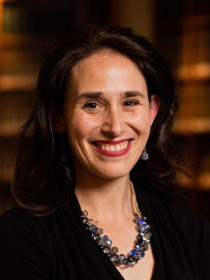
Rachael V. Cobb
Connect with Rachael
About Rachael
Cobb is a political scientist whose research focuses on U.S. elections, election administration, electoral politics, civic engagement, and political participation. Her work has focused on how voters are treated by election officials when they show up to vote. At Suffolk University, Cobb runs the University Pollworkers Project, a nonpartisan program designed to recruit college students to serve as poll workers in partnership with the City of Boston’s Election Department. Cobb serves on the Board of MassVOTE based in Boston, an organization dedicated to promoting political participation of historically underrepresented communities in Massachusetts.
Contributions
The Many Benefits of Online Voter Registration
In the News
Publications
Introduces a new type of long-term empirical data: the civic group affiliations declared by Massachusetts state senators over much of the twentieth century. Offers a window into the nature and possible causes of shifting elite civic affiliations, and help to pinpoint the relative timing of elite and mass withdrawals from major membership associations.